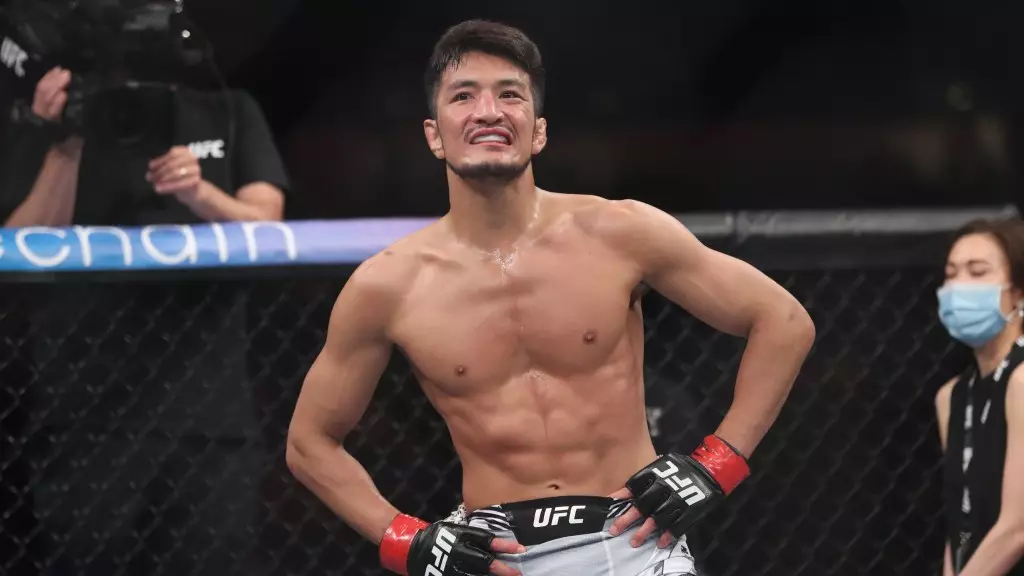South Korean MMA fighter Kyung-ho Kang has officially announced the conclusion of his time with the UFC after a significant 12-year run within the organization. The announcement, initially perceived as a retirement statement, clarified that Kang’s contract simply expired. In a heartfelt Instagram video, he expressed gratitude towards his supporters and reflected on his professional journey. With a record of 19 wins and 11 losses (8-5 in the UFC), Kang’s career is a testament to the rigorous challenges faced by fighters in a high-stakes environment.
Throughout his tenure, Kang overcame numerous obstacles, including a controversial early loss to Alex Caceres—later declared a no-contest due to Caceres testing positive for marijuana. This instance highlights the often unpredictable nature of MMA, where regulations and personal circumstances can dramatically alter a fighter’s trajectory. However, Kang’s career began to gain momentum after that setback, as he accumulated an impressive series of victories, showcasing his grappling prowess with three submission wins among six victories in a span of seven fights.
Despite his earlier successes, Kang faced challenges in the latter part of his career with consecutive losses to John Castaneda and Muin Gafurov, which ultimately influenced his decision to part ways with the UFC. This phase of Kang’s journey serves as a reminder of the physical and emotional toll that professional fighting can exert. The anticipation and adrenaline experienced during matches can quickly shift to frustration and disappointment, especially when results don’t align with one’s aspirations.
Kang’s retirement from the UFC enforces a common narrative within combat sports: the struggle to maintain peak performance amidst the realities of aging and evolving competition. As he reflected in his message, the experiences of training, competing, and interacting with fans all contributed to a fulfilling life, even if the outcome wasn’t always advantageous in the cage.
As he closes this chapter, Kang is optimistic about what the future holds. His sentiment of excitement towards the life ahead is an encouraging sign for both him and his fans. The emotional connection he fostered with supporters—through shared joys and sorrows—demonstrates the importance of community within sports. Combating in front of cheering crowds transforms individual matches into collective experiences, fostering a sense of belonging that far exceeds any victory or defeat.
Kang’s announcement also presents a pivotal moment in the broader context of MMA careers, particularly for athletes transitioning away from the UFC. Future endeavors could encompass coaching, mentoring aspiring fighters, or even exploring opportunities in other MMA promotions. His open-hearted communication with fans indicates a willingness to stay engaged within the sport in some capacity.
Kyung-ho Kang’s journey within the UFC is emblematic of the resilience and passion that stains the world of mixed martial arts. As he embarks on this new stage of life, Kang leaves behind a legacy that inspires both current and future fighters. The respect garnered over the years—from fans and colleagues alike—is a testament to the impact he’s made, both inside and outside the octagon. The fight may be over for now, but the spirit of competition will undoubtedly remind him of the victories and lessons learned.

